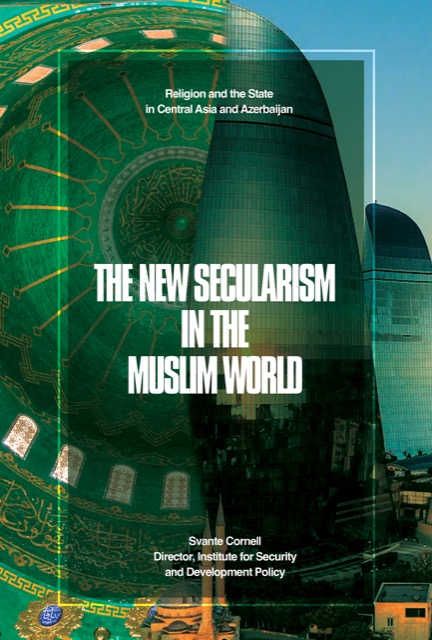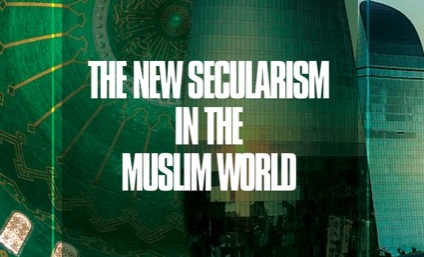By Svante E. Cornell
AFPC Press / Armin Lear, 2023
 Across the Muslim world, religion and politics have become increasingly mixed in the past century, with devastating consequences. But there are signs that the ascendancy of political Islam may be coming to an end. In this context, the experience of Central Asia and Azerbaijan as Muslim-majority states that insist on secular laws, courts and education is a much-overlooked model that is bound to attract greater interest. THE NEW SECULARISM is the first study of the Central Asian model in the realm of the interaction of religion and the state, which examines its characteristics as well as how it relates to other frequently touted models in the Muslim world.
Across the Muslim world, religion and politics have become increasingly mixed in the past century, with devastating consequences. But there are signs that the ascendancy of political Islam may be coming to an end. In this context, the experience of Central Asia and Azerbaijan as Muslim-majority states that insist on secular laws, courts and education is a much-overlooked model that is bound to attract greater interest. THE NEW SECULARISM is the first study of the Central Asian model in the realm of the interaction of religion and the state, which examines its characteristics as well as how it relates to other frequently touted models in the Muslim world.
Link to Amazon.com page (Paperback $21.95, Kindle $9.99)
Link to Amazon.de page. (Paperback €30, Kindle €7.48)
Link to Amazon.co.uk page. (Paperback £37.00, Kindle £9.99)
Link to Adlibris page (Sweden)
Praise for "The New Secularism in the Muslim World":
Too often cultural, political and security insensitivities have blinded the eyes of well-meaning activists causing them to declare what’s right wrong and what’s wrong right. This is frequently the case regarding religious freedom and secular governance in Central Asia and Azerbaijan. As only he can, Svante Cornell asks the questions so few are willing to ask but whose answers are the missing link in the elusive pursuit of religious freedom, for all. --- REV. JOHNNIE MOORE, President of the Congress of Christian Leaders, former Commissioner for the United States Commission on International Religious Freedom
Svante Cornell’s new book is a must read for anyone interested in the relationship between Islam and the state. The former Republics of Central Asia and Azerbaijan, he reveals, have developed a unique model of the secular state, one that respects traditional forms of belief but works aggressively to keep religion out of politics. While admitting that religion has sometimes been oversecuritized by the state, Cornell also suggests that the Central Asian and Azerbaijani approach has successfully countered the divisiveness of radical Islamist ideologies. The book lays the groundwork for arguing that American officials who seek to promote freedom of religion sometimes inadvertently assist religious radicals who seek to destroy the coexistence among Muslim, Christian and Jewish citizens that the Central Asian and Azerbaijani model seeks to protect. --- MICHAEL DORAN, Senior Fellow, Hudson Institute, and former Senior Director for Near East and North African Affairs, National Security Council.
Rigorously written and rich in detail, this book deserves to enter the mainstream of debate over the current state and future development of relationship between the state and religion in Central Asia. Dr. Cornell traces the regional history of Islam with emphasis on the emergence of the Maturidi school and how secular views gradually spread across the region even before the Soviet rule. He masterly maps out how the Central Asian “model” of religious policy was formed and is functioning now across the region. --- SENATOR SODYQ SAFOEV, Rector, University of World Economy & Diplomacy, Tashkent, Uzbekistan.
Religion, religious freedom, secularism, Islam, Islamism– these are subjects about which most people are less knowledgeable than they assume. They’d be well-advised to turn to Svante Cornell’s new book which focuses a scholarly eye on them all, and delves deeply into Central Asia and the Caucasus, a fascinating and historically rich corner of the world that has been largely neglected by academics and journalists alike. --- CLIFF MAY, President, Foundation for the Defense of Democracies and former Commissioner for the United States Commission on International Religious Freedom.



